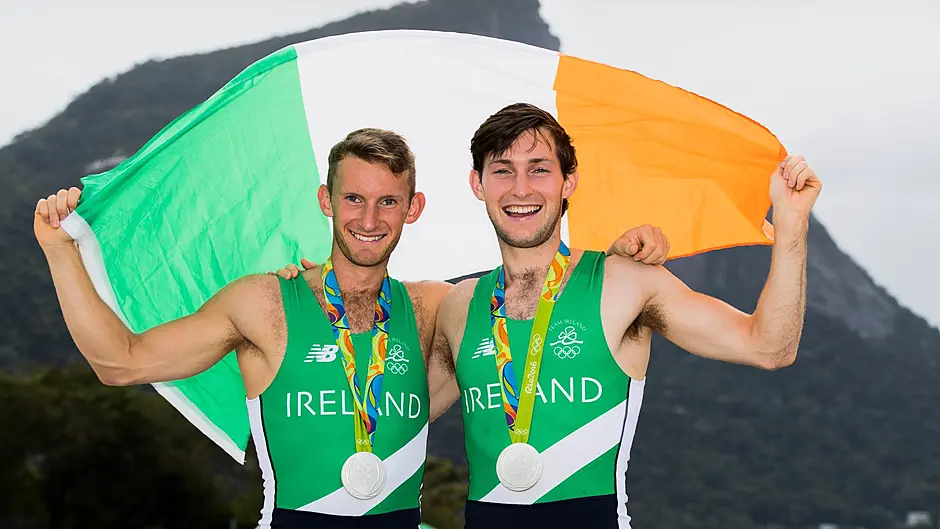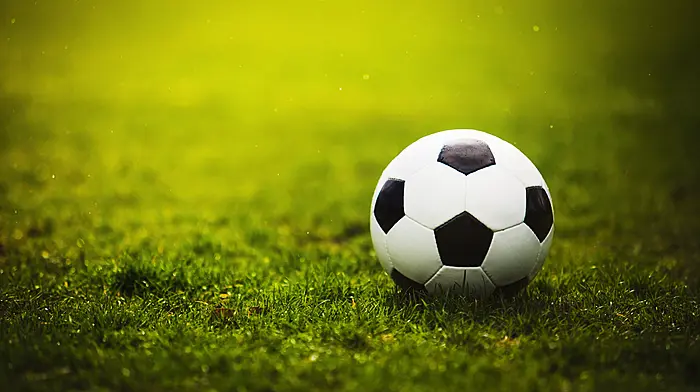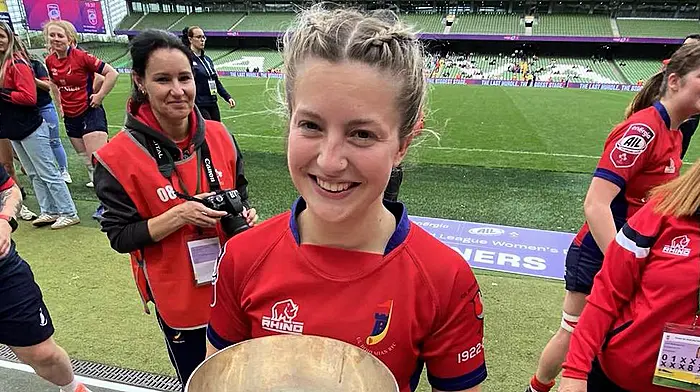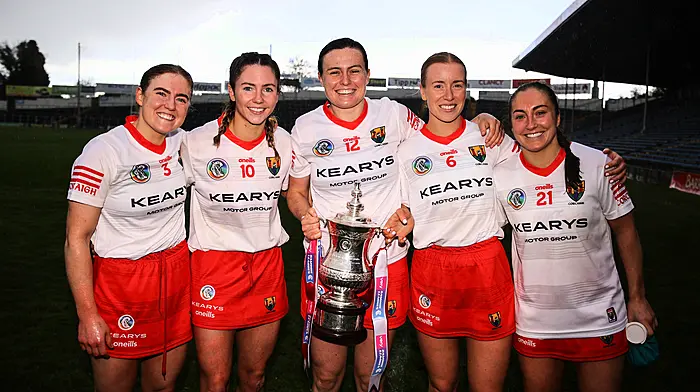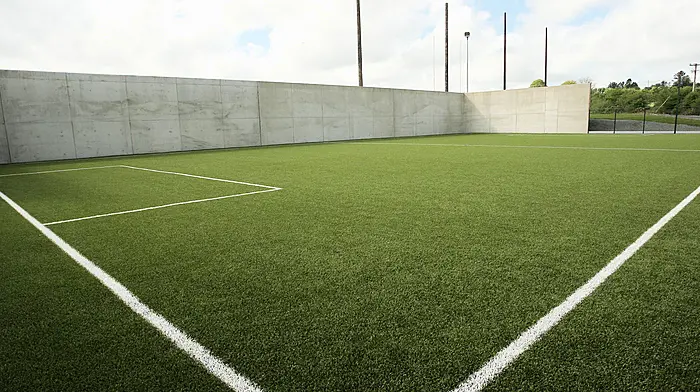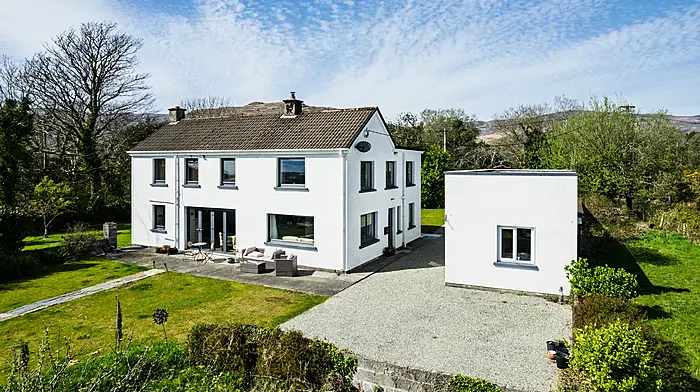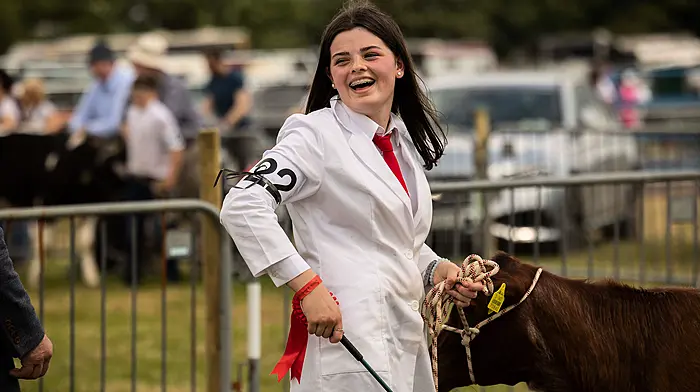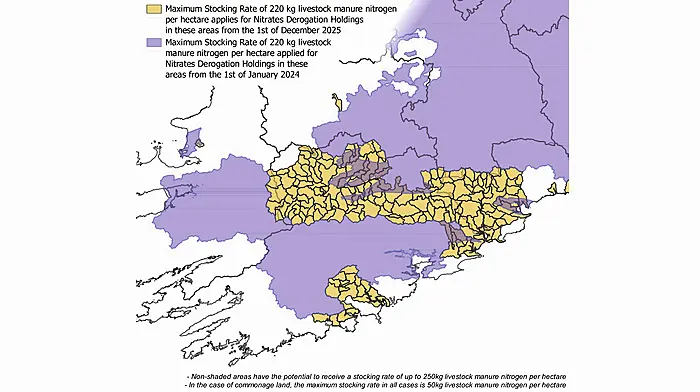It’s four years since two young men from Lisheen won Ireland’s first-ever rowing medal at an Olympic Games. KIERAN McCARTHY examines how Gary and Paul O’Donovan’s Olympic silver in 2016 impacted Irish rowing and helped transform the sport, both locally and nationally
**********
‘WE are not doing anything different to them, we are doing the same training, we are getting the same coaching from Dominic, we are doing exactly what they are doing so in theory we should be able to achieve what they are, eventually. If they can do it, we feel we can do it’ – Fintan McCarthy, July 2017, The Southern Star.
FINTAN McCarthy is now 23 years old, a world champion and on course to compete at the next Olympics, but in August 2016 he was 19, an up-and-coming rower preparing for that month’s World U23 Rowing Championships in Rotterdam.
He was in The Paragon Bar in Skibbereen when Gary and Paul O’Donovan won Ireland’s first-ever Olympic medal at the 2016 Games in Rio.
That was Friday, August 12th, 2016. That’s the day that transformed Irish rowing.
Fintan had heard all about the hard-luck stories that peppered Irish rowing’s history. At the 1976 Olympics in Montreal Sean Drea finished fourth in the single sculls. Twenty years later, at the 1996 Atlanta Olympics, the Irish lightweight four finished fourth as well. Close, but not close enough.
But then Gary and Paul came along in 2016, the silver bullets in Rio who broke through the glass ceiling and showed that Irish rowers are good enough to win Olympic medals.
That moment was not lost on Fintan, or his twin brother Jake (who watched the Olympic final in the boardroom at the National Rowing Centre). They trained on the River Ilen with Gary and Paul. They followed the same route, and training programme, at Skibbereen Rowing Club. They had the same coach, Dominic Casey. Then they saw Gary and Paul win Olympic silver.
‘You always look at the Olympic crews who win medals and think, “Jesus, they must be unreal, they must be on another level”. Obviously at the time Gary and Paul were, but because we could compare ourselves to them at that age and we knew that if we could continue on this trajectory, then we have a chance to achieve success too,’ Fintan explains.
In 2017, Fintan told The Southern Star: ‘If they can do it, we feel we can do it.’
Gary and Paul weren’t two aliens that flew down for an Olympic year and medalled. They have two arms and two legs like every other Irish rower. They believed too, heading to Rio, that they would medal. They believed that they were good enough to win a medal – and they were.
That belief has been infectious.
‘That medal was the turning point,’ says Skibbereen rower Timmy Harnedy. He was a sub for the lightweight men’s four that finished sixth at the 2004 Athens Olympics.
‘An Olympic medal had eluded us for a long time and there were questions as to why we hadn’t won one when there were crews that were good enough to medal.
‘A lot of crews thought they could have won a medal and genuinely believed that but in the rowing community maybe there wasn’t that same belief because we hadn’t won an Olympic medal before.
‘Then Gary and Paul came along, won silver and that medal has probably normalised this a little, having Olympic medallists around. It gave the general rowing populous the belief that they could do it.’
In Rio they achieved what no Irish rowers had before and by breaking this psychological barrier they’ve carved a path for other elite Irish rowers.
***
Gary and Paul’s Olympic silver medal wasn’t a one-off or a flash in the pan. Instead, it’s been followed by an impressive body of work. Paul, now 26 years old, has won four senior World titles since Rio (2016 – 2019) and in 2018 the O’Donovan brothers won World gold in the men’s lightweight double sculls. Last year, Fintan McCarthy, the teen who watched his club-mates win an Olympic medal in 2016, was in the Irish double alongside Paul that won senior World gold. Fintan squeezed Gary out of the boat.
The Irish men’s lightweight double, because of Gary and Paul, is a medal machine. Irish rowers know if they can get in that boat then they have a great chance of winning medals – that’s a huge incentive and motivation, but also the environment created by Gary and Paul’s continued success. To get in that boat you need to beat an Olympic medallist. That’s what Fintan did. And he is now a world champion. Standards are rising all the time. If Gary wants to win his seat back, then he needs to dislodge a world champion.
Having Olympic medallists and serial winners in the Rowing Ireland system has led to incredibly high standards in the national set-up.
Already, four Irish boats have qualified for the next Olympics – the men’s lightweight double, the men’s heavyweight pair, the women’s heavyweight single and the women’s heavyweight pair – and two more will try to qualify (the women’s four and the women’s lightweight double).
‘You are not at the races now at Irish trials unless you are medal standard. Certainly, the lightweight men, the heavyweight men, the heavyweight women, it’s across all categories. The expectation now is to win medals. They have raised the standards,’ Timmy Harnedy explains.
‘Because Gary and Paul are still rowing and still leading the charge, it’s very helpful for all other rowers coming up through the ranks because you know exactly where you are against people who are up there with the best in the world. That’s a massive help to, let’s say, the heavyweight double, when they train against the lads they know that’s a gold medal standard boat they are training against.’ Gary and Paul’s medal raised standards on the water, but also raised rowing’s profile off the water.
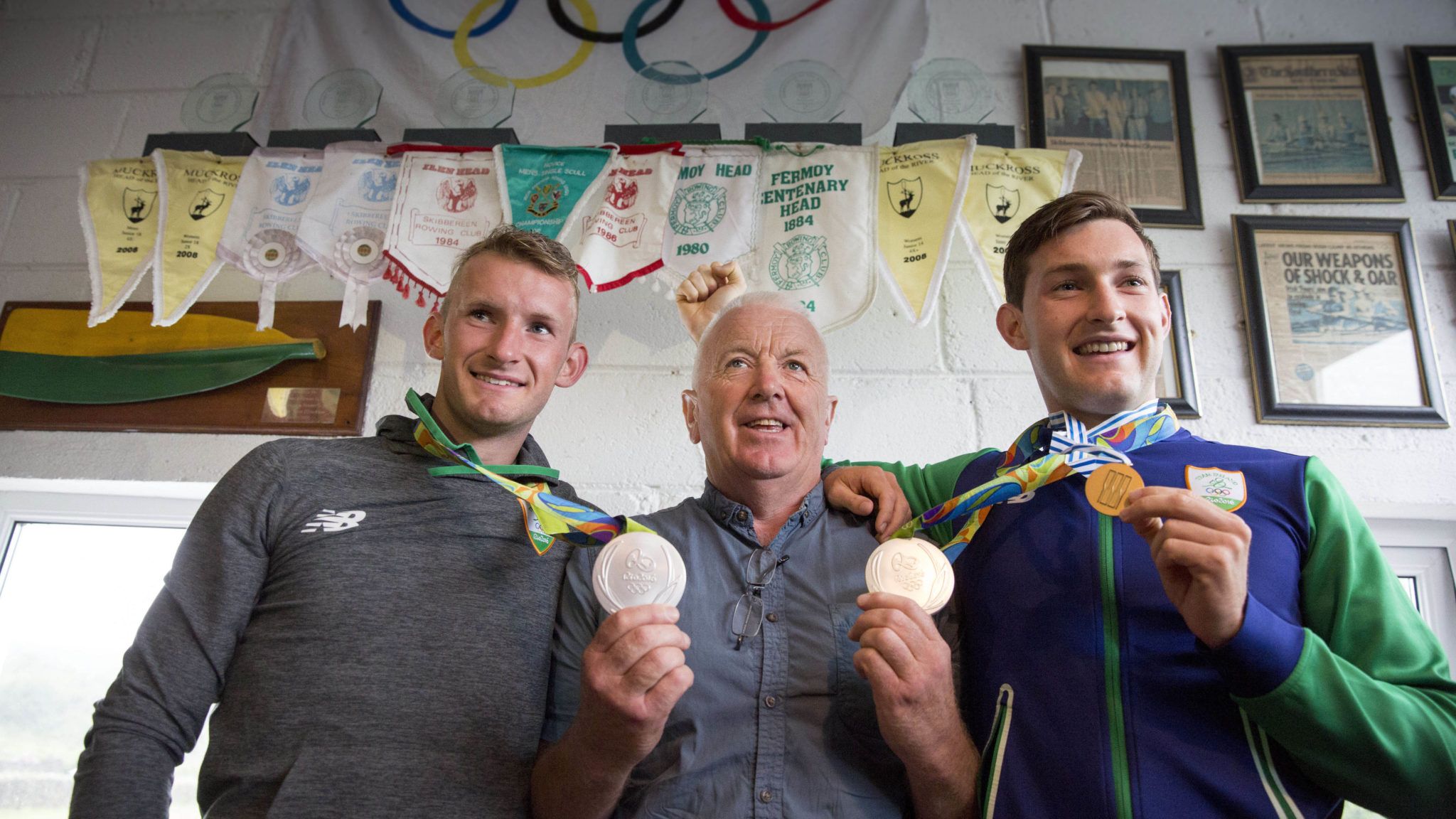 Olympic silver medallists Gary and Paul O'Donovan with their coach Dominic Casey at the homecoming in 2016.
Olympic silver medallists Gary and Paul O'Donovan with their coach Dominic Casey at the homecoming in 2016.***
The O’Donovan brothers have taken Irish rowing to corners of society that it had never thought were possible or accessible. As athletes, they are world class. They showed that at the Rio Games and have continued ever since. Package that talent with their personalities and you get box-office results. Their post-race interviews at Rio are legendary. Shteak, spuds, pull like a dog, they reeled off the-liners and a country fell for their charm. Those who knew nothing about rowing were suddenly engrossed. Rowing, a minority sport, had their attention. Everyone heard about Gary and Paul, the O’Donovan brothers, those two lads from Skibbereen.
‘I think they became bigger than rowing,’ Rowing Ireland chief executive Michelle Carpenter says.
‘All of a sudden we had two Irish rowers on The Graham Norton Show’s New Year’s Eve special in 2016, on the same couch as Michael Fassbender and Marion Cotillard.
‘Their personalities really made them well known. Everyone knows who they are and that did wonders for the profile of Irish rowing, absolutely.’
There were appearances on The Late Late Show. They were named the 2016 RTÉ Sports Team of the Year. They were featured in magazines and newspapers, in lifestyle and news sections as well as sports pages. Paddy Power, at the time, even had odds on who their potential partners could be. Their story was told in a special one-hour documentary, Pull Like A Dog. Red Bull produced another mini documentary about them, The O’Donovan Brothers – Way of the Wildcard.
In 2018 Gary was one of four ‘influencers’, along with Niamh Cullen, Rob Kenny, Lisa Jordan (together at the time the quartet had over 700,000 social media followers combined), who took part in Visa’s #TapintoIreland campaign. Whoever thought that a rower would be an influencer?
 Rower/influencer Gary O'Donovan was part of Visa's #TapintoIreland campaign in 2018.
Rower/influencer Gary O'Donovan was part of Visa's #TapintoIreland campaign in 2018.
Gary and Paul are rowers who became celebrities, household names in their early 20s. Rowing became fashionable because of them, and it’s helped rowing reach an an entire new audience. RTÉ even sent a crew to the 2017 European Rowing Championships in the Czech Republic off the back of Gary and Paul’s Olympic silver because the interest was huge.
In the lead-up to Rio, and before she became Rowing Ireland chief executive, Michelle Carpenter was behind the successful Get Going Get Rowing programme. That took her into schools across the country. She was shocked that kids didn’t even know that Ireland were sending rowers to the 2016 Olympics.
Rowing has to battle for publicity, for its column inches, but along came Gary and Paul, and people couldn’t get enough of them. They reached every house in the country, and beyond, better than any paid advertising campaign.
So, did Rowing Ireland capitalise on Gary and Paul’s success and make the most out of it?
‘I think we did, yes,’ Carpenter says.
‘Because we’re not a sport with big gate receipts and that can have big television rights, finance will always present an issue, but Gary and Paul have helped raise our profile. It’s something we still need to look at, to bring in finance and sponsorship, and we were hoping for that with the Tokyo Olympics this year, but that didn’t happen of course.
‘Still, we have made big strides in recent years, Dominic Casey came on board as lightweight coach and has overseen great success, Antonio Maurogiovanni joined as our High Performance Director and we now have a system that has brought us formidable success.’
All the way through this journey Gary and Paul have been terrific ambassadors for Irish rowing and Skibbereen rowing, where it all started.
***
Gary and Paul have put Skibbereen on the map. They’ve also put Skibbereen Rowing Club on centre stage. This is the breeding ground for Ireland’s first Olympic rowing medals, but also the home of five Olympians and coach Dominic Casey, who was named World Rowing Coach of the Year for 2018.
Standards have always been high in Skibbereen Rowing Club. That’s the culture within the club, and Gary and Paul have taken that into the Irish set-up, as has Dominic Casey whose importance in this story can’t be undervalued.
‘Their silver medal in Rio did raise our profile within the community,’ Skibbereen Rowing Club Chairman Sean Murran explains.
‘Before we would have been fairly localised as a club and it actually expanded our catchment area out, to Drimoleague, Dunmanway, Clonakilty, Rosscarbery, and we now have athletes from those areas.’
Then there’s Skibb’s culture. They are Ireland’s most successful rowing club for a reason. They row to race, and race to win.
‘There are always high expectations in the club but more so now you hear younger athletes talking about it’s not just going to national championships, it’s going to world championships and to Olympics because they’ve seen senior athletes from the club achieve these heights,’ Murran says.
Numbers have also increased in the club since 2016. That’s the Gary and Paul effect. The number of junior beginners has doubled from 2016 to 2019, from 20 to 39 – and that can be directly linked to the Olympic silver medal. The club now has a very strong U16 panel. These were the kids who were 10, 11, 12 years old in August 2016, who watched two local lads create history, who were in a heaving Skibbereen town along with 10,000 for the homecoming – and those memories leave an impression.
‘There’s a huge sense of pride in being a Skibbereen rower. It was there before but it’s more pronounced now. You can see more kids locally wearing Skibbereen Rowing Club tops and that they are proud to be Skibbereen rowers,’ club PRO Emily Dulohery says.
Numbers in the club’s national schools’ rowing programme remain strong too. Skibbereen RC was the first rowing club in the country to roll out a programme like this, which gives kids in eight local national schools the opportunity to row. In 2019, over 150 local kids took part. The club has also teamed up with Skibbereen Community School; interestingly, on the school’s website, in its sports section, rowing is first on the list, ahead of GAA. The club’s popular summer camps are always booked out as well.
Gary and Paul’s success has made rowing more mainstream. It can be viewed as an elitist sport, for those in the higher echelons, but they have shattered that perception. Two lads from a bungalow in Lisheen who train at a club with a leaking roof and in a gym that has no windows and with weights made out of sheet medal and who launch boats onto the river in wellies because they have no pontoon. It’s not glamorous. When the world’s media descended on Skibbereen Rowing Club HQ, to learn more about the club and its most famous sons, they were taken aback by the facilities. In Skibb, the athletes’ mindset is what separates them from the chasing pack. There’s an incredible environment and culture in the club and that stretches back into the 1980s when Dominic Casey won eight national titles, then along came Grainne O’Donovan in the 1990s, and Eugene and Richard Coakley followed, as did Timmy Harnedy, and then it was Gary, Paul, Shane O’Driscoll, Mark O’Donovan, Denise Walsh, Fintan and Jake – and the conveyor belt is still strong. Since 2016, the club facilities have improved.
‘It became easier for us to access grant funding because of Gary and Paul. Our shortcomings in infrastructure became more obvious because everyone saw the shortcomings we did have yet our rowers were still achieving remarkable results at the highest level,’ Sean Murran says. The club has bought new boats, some of which are now at the National Rowing Centre. The clubhouse has a new roof. Indoor training facilities were improved when an erg room was built above the squash court. All improvements that help the club’s rowers and future rowers.
It means the club is in a stronger position then pre-2016. Numbers have improved as has the club infrastructure. That’s the Gary and Paul effect.
Outside of the club, their 2016 Olympic success also injected a real sense of community pride locally. It made locals proud to be from Skibbereen. The town itself has benefitted from Gary and Paul. Still, you’ll see posters of the O’Donovan brothers on windows in the town.
‘Their silver medal in 2016 brought so much happiness and energy to the community, to everyone, which was great to see. Skibbereen was mental on the day of the final – and it was incredible to think that it was two rowers who caused that and shut the town down!’ Fintan McCarthy says.
 President of Ireland Michael D Higgins with Skibbereen rowers Shane O'Driscoll, and Gary and Paul O'Donovan at the reception in Áras an Uactharáin for Skibbereen Rowing Club in 2017.
President of Ireland Michael D Higgins with Skibbereen rowers Shane O'Driscoll, and Gary and Paul O'Donovan at the reception in Áras an Uactharáin for Skibbereen Rowing Club in 2017.***
So, what difference has the Gary and Paul effect made to rowing in Ireland? At a local level in Skibb, it’s helped improved facilities, increase numbers, raise the profile of the club and the town, and made a difference to the community as a whole, that pride of place. It even led to a special reception for the club at Áras an Uachtaráin in 2017, hosted by President of Ireland, Michael D Higgins.
At a national level, they’ve raised standards for Irish rowers, created an environment where medals are expected and shown that nothing is impossible. Their greatest legacy, however, is that they’ve injected huge self-belief into the Irish rowing community. They’re trail-blazers, the two boys from the back of beyond who won Olympic medals and transformed rowing in Ireland.

